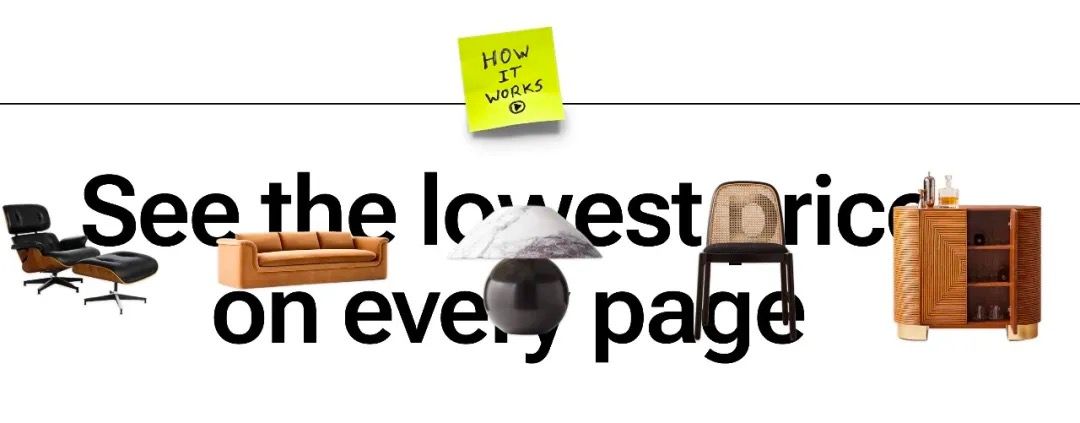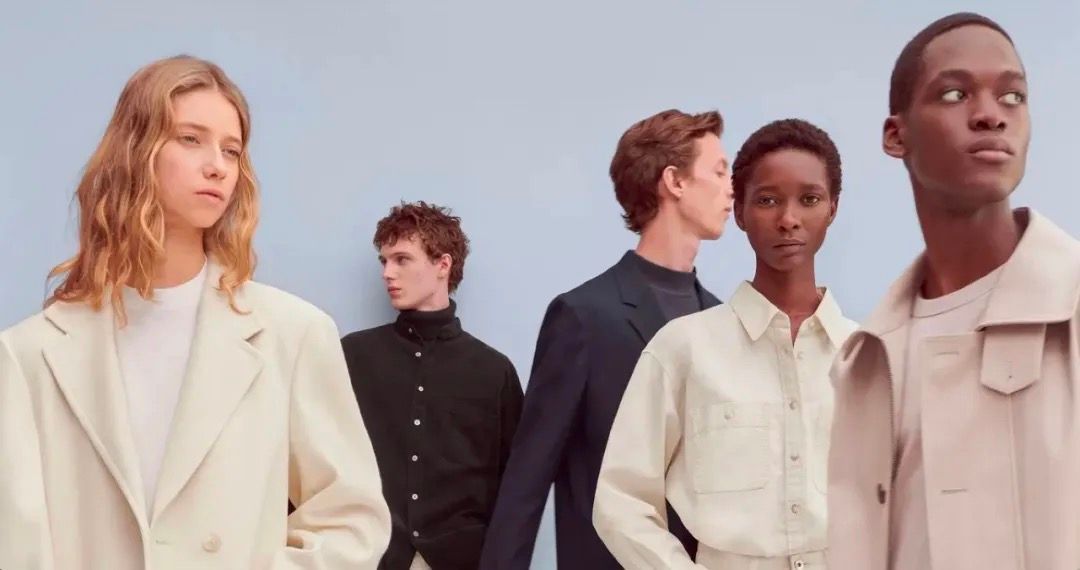Ever Tried Dupes?
)
From beauty products to skincare, electronics to fashion, the concept of "dupes" has become a sweeping cultural phenomenon. The term "dupe" typically refers to either an item that has the same function and style but comes from a different brand or essentially identical items sold under different names. The driving force behind this trend is the pursuit of cost-effective alternatives. As the saying goes, "If you have champagne tastes but a beer budget," then you'll be interested in a new software offering designer furniture dupes, which has quietly garnered the attention of millions.
The Dupe Frenzy in Designer Furniture
As of now, videos tagged with #Dupe on TikTok have amassed nearly 6 billion views. Bobby Ghoshal, co-founder and CEO of Dupe, has shared on social media how the Dupe website works. Users simply visit a furniture webpage and prepend the URL with “dupe.com/” before pressing enter. The website then suggests affordable alternatives to the desired item. In one demonstration, a Pierre Jeanneret Kangaroo Chair priced at $32,500 on 1stDibs had numerous similar options on eBay, Wayfair, and AliExpress, priced between $169 and $433.

In English, "Dupe" originally means "duplication" or "copy." However, the Dupe software doesn't create replicas; it merely offers a shortcut for consumers to find budget-friendly alternatives. Imagine you're decorating your new home and find a designer piece way out of your budget. A few clicks on Dupe can lead you to a similar, reasonably priced option—tempting yet concerning.
Ghoshal told Fast Company that Dupe is not intended to help design copycats profit off established brands. Instead, it aims to benefit consumers while also giving brands exposure. For those criticizing Dupe for aiding consumers in shortcutting design innovation, Ghoshal suggests Dupe can help users buy high-end products, addressing both criticisms.
Ghoshal mentioned efforts to implement a "report fraud website" feature, ensuring Dupe actively blocks and manages such sites. However, the question remains—while helping consumers find "dupes" or imitations, who bears the greatest loss?
The Moral Dilemma of Anti-Consumerism through Dupes
As dupes become increasingly popular (including many counterfeit products), it seems everyone is experiencing an anti-consumerism awakening. Many believe some imitations are made in the same factories as the originals, viewing their purchase as outsmarting the system. However, this new wave of online "dragon-slaying" brings about new contradictions.
Firstly, designers are the most direct victims. Their intellectual property is reduced to mass-produced knock-offs, with profits diverted from the creators to the imitators. Moreover, the purchase and consumption of imitations contribute to humanitarian crises and environmental issues, as seen with fast fashion.
In the ethical fashion section of Reddit, one user posed a question reflecting this moral quandary:
@Equal-Local-327
"As a creative person, I think it’s important to recognize and credit original work. When I buy an item from a brand that designs or conceptualizes it, I feel much better about it. However, I find most original designer fashion extremely expensive (like the stuff we see on runways), which most people can’t afford, including myself. Affordable clothes (like Zara) are often inspired by or direct copies of these designs. So besides all the issues with brands like Zara, I also feel conflicted about buying from brands that essentially steal other designers' ideas… If the 'original' designs are out of my budget, what are my options? If I can only afford knock-offs, is it still unethical to buy them?"
This post resonated with many users who shared thoughtful opinions from both sides:
@Puzzleheaded-Pitch70
"Honestly, it depends. I would never wear fake Jordans or any type of shoes, but I might wear a dupe of a more expensive hoodie. I don’t understand how a basic hoodie can be worth $200 or more when it’s usually made of the same materials as fast fashion clothes. Shoes are different because there’s a significant difference in quality, and I wear them much more often than clothes."
@ThrowRA294638
"Honestly… the word 'designer' has lost a lot of meaning. Designer brands’ quality has dropped a lot; they basically make the same terrible labor-produced clothes as everyone else and expect consumers to pay $$$. Designers used to be haute couture companies producing limited specific items with craftsmanship; now, they churn out thousands of lazy designs each year. Check out Kristina Pawlowski’s video 'The Biggest Lie in Luxury Shopping.' Honestly, as long as a brand’s supply chain is transparent, I don’t care who’s copying whom."
@Equal-Local-327
"An intricately embellished or obviously high-craft and artistic piece will never have an 'ethical' dupe. For example, you won’t find an authentically priced fully beaded dress on Zara—it’s a true piece of art. The work that goes into such a dress, like many haute couture pieces, is akin to craftsmanship and deserves corresponding compensation (most 'affordable' fashion companies like Zara cannot reasonably produce such items at their price). Of course, designer does not equal haute couture or high fashion; they may also engage in labor exploitation."
@Equal-Local-327
"I think it’s expected to see items inspired by designer brands. But I think exact replicas are unethical and likely cheaply/unethically made. We live in an extremely consumerist society where people believe if they want something, they should be able to get it. We need to re-learn that if you can’t afford it, you can’t have it. The best method is to save and then purchase thoughtfully and purposefully."
This Reddit user's question reflects a moral dilemma faced by many: If 'original' designs exceed my budget, what options do I have? If I can only afford knock-offs, is it still unethical to buy them?
If you want a designer piece without supporting imitation or violating designers' rights, what should you do? There’s a brand approach that might offer a solution—
Ever Tried Dupes?
From beauty products to skincare, electronics to fashion, the concept of "dupes" has become a sweeping cultural phenomenon. The term "dupe" typically refers to either an item that has the same function and style but comes from a different brand or essentially identical items sold under different names. The driving force behind this trend is the pursuit of cost-effective alternatives. As the saying goes, "If you have champagne tastes but a beer budget," then you'll be interested in a new software offering designer furniture dupes, which has quietly garnered the attention of millions.
The Dupe Frenzy in Designer Furniture
As of now, videos tagged with #Dupe on TikTok have amassed nearly 6 billion views. Bobby Ghoshal, co-founder and CEO of Dupe, has shared on social media how the Dupe website works. Users simply visit a furniture webpage and prepend the URL with “dupe.com/” before pressing enter. The website then suggests affordable alternatives to the desired item. In one demonstration, a Pierre Jeanneret Kangaroo Chair priced at $32,500 on 1stDibs had numerous similar options on eBay, Wayfair, and AliExpress, priced between $169 and $433.
In English, "Dupe" originally means "duplication" or "copy." However, the Dupe software doesn't create replicas; it merely offers a shortcut for consumers to find budget-friendly alternatives. Imagine you're decorating your new home and find a designer piece way out of your budget. A few clicks on Dupe can lead you to a similar, reasonably priced option—tempting yet concerning.
Ghoshal told Fast Company that Dupe is not intended to help design copycats profit off established brands. Instead, it aims to benefit consumers while also giving brands exposure. For those criticizing Dupe for aiding consumers in shortcutting design innovation, Ghoshal suggests Dupe can help users buy high-end products, addressing both criticisms.
Ghoshal mentioned efforts to implement a "report fraud website" feature, ensuring Dupe actively blocks and manages such sites. However, the question remains—while helping consumers find "dupes" or imitations, who bears the greatest loss?
The Moral Dilemma of Anti-Consumerism through Dupes
As dupes become increasingly popular (including many counterfeit products), it seems everyone is experiencing an anti-consumerism awakening. Many believe some imitations are made in the same factories as the originals, viewing their purchase as outsmarting the system. However, this new wave of online "dragon-slaying" brings about new contradictions.
Firstly, designers are the most direct victims. Their intellectual property is reduced to mass-produced knock-offs, with profits diverted from the creators to the imitators. Moreover, the purchase and consumption of imitations contribute to humanitarian crises and environmental issues, as seen with fast fashion.
In the ethical fashion section of Reddit, one user posed a question reflecting this moral quandary:
@Equal-Local-327
"As a creative person, I think it’s important to recognize and credit original work. When I buy an item from a brand that designs or conceptualizes it, I feel much better about it. However, I find most original designer fashion extremely expensive (like the stuff we see on runways), which most people can’t afford, including myself. Affordable clothes (like Zara) are often inspired by or direct copies of these designs. So besides all the issues with brands like Zara, I also feel conflicted about buying from brands that essentially steal other designers' ideas… If the 'original' designs are out of my budget, what are my options? If I can only afford knock-offs, is it still unethical to buy them?"
This post resonated with many users who shared thoughtful opinions from both sides:
@Puzzleheaded-Pitch70
"Honestly, it depends. I would never wear fake Jordans or any type of shoes, but I might wear a dupe of a more expensive hoodie. I don’t understand how a basic hoodie can be worth $200 or more when it’s usually made of the same materials as fast fashion clothes. Shoes are different because there’s a significant difference in quality, and I wear them much more often than clothes."
@ThrowRA294638
"Honestly… the word 'designer' has lost a lot of meaning. Designer brands’ quality has dropped a lot; they basically make the same terrible labor-produced clothes as everyone else and expect consumers to pay $$$. Designers used to be haute couture companies producing limited specific items with craftsmanship; now, they churn out thousands of lazy designs each year. Check out Kristina Pawlowski’s video 'The Biggest Lie in Luxury Shopping.' Honestly, as long as a brand’s supply chain is transparent, I don’t care who’s copying whom."
@Equal-Local-327
"An intricately embellished or obviously high-craft and artistic piece will never have an 'ethical' dupe. For example, you won’t find an authentically priced fully beaded dress on Zara—it’s a true piece of art. The work that goes into such a dress, like many haute couture pieces, is akin to craftsmanship and deserves corresponding compensation (most 'affordable' fashion companies like Zara cannot reasonably produce such items at their price). Of course, designer does not equal haute couture or high fashion; they may also engage in labor exploitation."
@Equal-Local-327
"I think it’s expected to see items inspired by designer brands. But I think exact replicas are unethical and likely cheaply/unethically made. We live in an extremely consumerist society where people believe if they want something, they should be able to get it. We need to re-learn that if you can’t afford it, you can’t have it. The best method is to save and then purchase thoughtfully and purposefully."
This Reddit user's question reflects a moral dilemma faced by many: If 'original' designs exceed my budget, what options do I have? If I can only afford knock-offs, is it still unethical to buy them?
If you want a designer piece without supporting imitation or violating designers' rights, what should you do? There’s a brand approach that might offer a solution—
How to Approach Dupes More Cautiously
In 2022, a familiar name ascended to the top of Japan's wealthiest: Tadashi Yanai, the founder of Uniqlo. In 2023, Uniqlo’s parent company made it to the TOP100 of Deloitte’s "2023 Global Powers of Retailing" report. Ten years ago, mentioning Uniqlo outside Japan would draw blank stares. Today, it evokes quality, affordability, and style.
The focus here is not Uniqlo’s business model success but how its brand collaborations have addressed the budget constraints of designer items. Brand collaborations aren’t new; they’ve been selling points for high-end brands. From Gucci x Adidas to the 2014 sold-out Lewis Road Creamery x Whittakers collaboration, they leverage existing brand success. Uniqlo has refined this strategy over a decade, expanding its audience and enhancing brand experience.
Jil Sanders’ collaboration with Uniqlo lasted over five seasons, and since 2018, Uniqlo has worked with French brand Lemaire’s Christophe Lemaire on the Uniqlo U series. Uniqlo also announced acquiring a minority stake in Lemaire, deepening their relationship and leveraging the brand’s growth with contemporary audiences.
Brand collaborations create buzz, drive sales, expand reach, and attract new audiences. Uniqlo strategically partners with contemporary brands like Jil Sander and Marni to appeal to more fashion-conscious consumers who value craftsmanship and design commitment. These partnerships have helped Uniqlo penetrate markets like the US and Europe where brand recognition was previously lower.
While buying collaboration pieces is a practical solution, the best approach remains thoughtful, purposeful purchasing. If anti-consumerism drives you to dupes but the market’s demand leads to constant “shopping sprees,” then dupes merely lead you down another problematic path.


